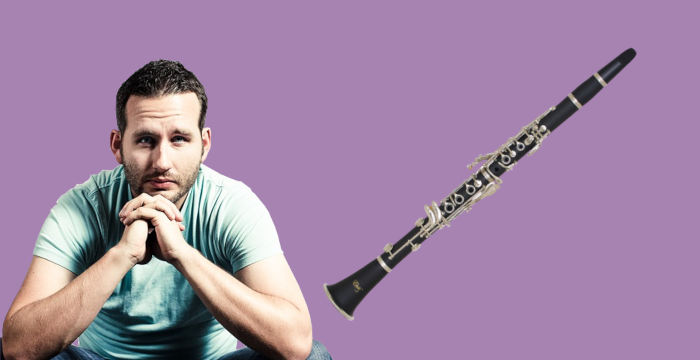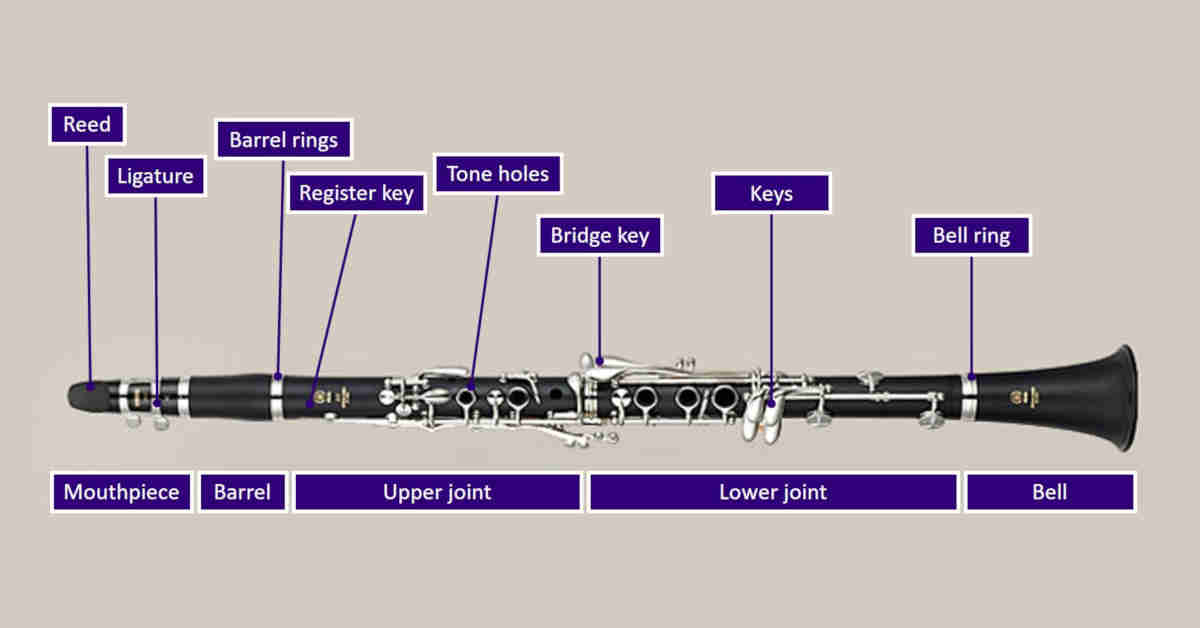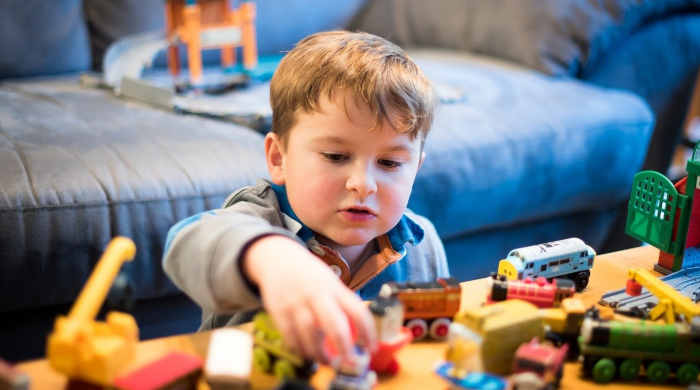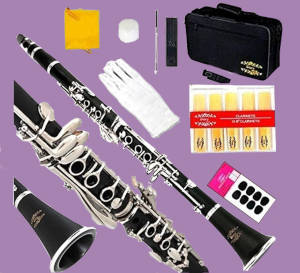
This post may contain affiliate links and we may receive compensation if you purchase products linked to below. As an Amazon Associate, we can earn from qualifying purchases. Please see our Terms and Conditions for details.
Finding reliable information online about a clarinet can be tough.
You might already know a bit about the popular Etude ECL-100 model. Maybe you’ve compared prices online. Or maybe you’re having trouble finding detailed info or Etude’s website.
I get it.
That’s why I decided to write this detailed review of the instrument for people like you who are trying to understand if it’s the right student model for them.
Frankly, and despite it’s popularity, this Etude student clarinet isn’t right for every clarinet player—or even every beginner player. But it can be a good choice for many. Here you’ll learn why. And by the end, you’ll have a better idea of whether this is the right clarinet model for you.
The Etude brand
Although the ECL-100 is a fairly popular student clarinet, little is known about the Etude brand itself. In fact, Etude doesn’t appear to have a corporate website. Suffice to say Etude is one of the smaller brands that focuses mainly on student wind instruments.
But don’t let their low-profile fool you. They offer a fairly wide range of instruments. Apart from clarinet, you’ll also find Etude brand saxophones, trumpets, trombones, flutes and even violins and cellos. And musicians have rated many of these instruments highly for their overall quality and value for money.
Key criteria for rating the Etude ECL-100 clarinet
Here’s where we get into the specific checkpoints for deciding which clarinet is best for you. Let’s talk about these criteria and how this Etude clarinet stacks up.
Pros
- Good sound quality
- Durable keywork
- Decent mouthpiece included
Cons
- Limited accessories included
- Poor workmanship on logo
1. Price
Check the price of each of the 15 best student clarinets from our list and you’ll find they range from under $100 to as much as $1,000 or more.
Sounds like a broad price range for what are all beginner clarinet models, doesn’t it?
You can generally find a new Etude ECL-100 clarinet for between $270-300. But that shouldn’t necessarily be the key driver of your buying decision.
Sure, if you can’t afford to drop a few hundred dollars on a new clarinet, this is an easy pass for you to make.
But as we’ll see, there are other differences between clarinets than just price alone. So if this Etude student clarinet seems within your budget—and it is a lower mid-priced model—let’s look at some more considerations.
2. Play-ability
Depending on who you’re buying a clarinet for, play-ability can be an important or even a make-or-break factor for choosing which model is best. And by play-ability, I mean how easy it is to play relative to other models.
Some clarinets are harder to play than others. For example, professional models are often deliberately made slightly out of tune for the benefit of the expert clarinetist. Only experts typically know how to play these models properly.
Other clarinets have specific features to improve play-ability, such as an adjustable thumb rest, which better accommodates people with differently sized hands.
Play-ability matters because the harder it is to play an instrument, the more likely a student is to get discouraged. Consider a fourth grader playing in school band with a clarinet that’s hard to play. How long will they stick with clarinet if they’re constantly struggling where their peers are having little difficulty?
The Etude ECL-100 standard model scores well overall in terms of play-ability. Most new musicians find it easy to play and handle with two caveats:
- The stock mouthpiece included can be hard to blow into and may takes some getting used to; and
- The tenon corks of the body fit a bit too tightly, which can make assembling and disassembling the instrument difficult
The mouthpiece included with the ECL-100 is actually pretty decent. But there are certainly student models that include a better one. You might consider trying this mouthpiece for a few weeks and then spending $20-30 to upgrade to a better one if needed.
As for the tenon corks, this is a pretty common complaint for new clarinets. Applying some cork grease usually helps loosen them up. If that’s not enough, you can also carefully sand or trim the corks until you’re able to assemble the clarinet.
3. Clarinet durability
Unless you’re looking for a toy instrument, you probably want a clarinet that’s going to last a reasonable length of time. Clarinets have a lot of moving parts. And a clarinet that’s not durable can cost hundreds of dollars to repair or replace if and when something breaks.
Taking a moment to familiarize yourself with the major parts of a clarinet can be helpful here if you haven’t already.

The Etude ECL-100 student clarinet is pretty durable. And there are a couple components to address specifically:
Body
The body of this Etude student clarinet is made from ABS plastic. Almost all student clarinets are made from this or a similar plastic material.
What’s good about ABS is that it’s highly resilient. It won’t crack or warp with changes in temperature or humidity. This makes it an ideal material for clarinets that will be played outside, such as in marching band.
Wood tends to be the body material of choice for professional models because it produces a richer sound. The drawback is that wooden models are less forgiving if dropped or handled roughly. And conditions when playing a wooden clarinet outside can ruin it.
Keys
The key tend to be one of more delicate parts of a clarinet. The Etude ECL-100 has nickel keys with a nickel-silver plating.
You won’t see quite the level of metalwork on these that you would with a higher-end student clarinet, such as a Yamaha YCL-255, for example. But these keys should hold up to normal play, and most musicians report no issues with key durability.
A common cause of bent or broken keys is rough handling during assembly and disassembly. Often a new clarinetist will grip the keys when pulling apart the joints of the instrument, especially when dealing with tightly fitting tenor corks. This puts undue stress on the keys and often leads to damage.
One durability caveat with student clarinets around this or lower price range is that many repair shops won’t work on them if parts are damaged. Local repair shops often don’t carry components for lower-end models or are reluctant to attempt repairs for fear of further damaging an instrument.
If you have a warranty for your clarinet, the dealer or manufacturer might repair or replace it for you in case of damage. But this could be an important point to keep in mind when considering the person you’re buying a clarinet for.
4. Sound
Some clarinets have a muffled sound that doesn’t resonate. Others may have an inconsistent sound that’s better when playing some notes and not others.
This Etude student model ECL-100 has been well-received for having a good, rich sound. And some music teachers have initially discouraged parents from buying this model and later been pleasantly surprised by its quality.
One musician complained that “throat tones” Bb and A were out of tune. But this isn’t a widely reported issue. Nor is it something that will be obvious to a first-time clarinet player.
5. Commitment to playing clarinet
This next point isn’t specifically a measure of the clarinet itself. It’s more a consideration of the person you’re buying it for.
Learning to play clarinet, as with any skill, takes commitment.
You might know someone who might be interested in clarinet. Or maybe that person has a birthday coming up and you’re just “winging it” with a gift for them because you don’t have better ideas.
But my advice is don’t go spending a lot of money on a clarinet you’re not sure this person will love. Buying a high-end clarinet for someone who’s likely to lose interest or give up in frustration within a few weeks would be a waste of money.
For example, let’s say you’re buying for a small child with no prior music experience, and you don’t know what they’ll be interested in a week from now. A cheaper student clarinet, one under $100, might be best.

These don’t tend to sound very good, and they sometimes don’t last more than a few weeks before something breaks on them. But a short time with the instrument will help you decide whether upgrading to a nicer model is worthwhile.
For anyone that actually wants to learn to play, the Etude ECL-100, being priced at the lower-mid range, is a decent beginner clarinet. You can expect it to last at least 2-3 years if properly handled and maintained.
So if the person you’re buying for is a first-time clarinetist who has expressed interest in the instrument, I say go for it.
6. Accessories included with the clarinet
Most student clarinets will include some accessories, necessary or not, for playing and maintaining the instrument. These may include cork grease, gloves, a reed case, extra reeds, a clarinet stand and others.
The least expensive models always seem to come with the most accessories included. And in my experience the lesser-known brands tend to package their clarinets with lots of other stuff included to make up for a lower-quality instrument.

It’s also been my experience that most accessories tend to be substandard. In many cases you’re better off replacing them upfront rather than trying to get by with them.
Depending on where you purchase, the Etude ECL-100 clarinet will typically come with:
- 1-2 reeds
- Mouthpiece
- Hard-shell carrying case
- Cleaning cloth
You’ll want to pick up some cork grease and a cleaning swab if your clarinet doesn’t include these. You won’t be able to assemble the instrument without the grease. And you won’t be able to properly clean the instrument—and this should be done after EVERY playing session—without a swab.
I suggest spending $15 or so on a decent cleaning kit like Cecilio’s or similar that includes both.
As for what you can expect from the accessories included with the ECL-100, I have a few comments:
Reeds
Any reed that comes with this clarinet is going to be a stock reed and not a good one at that. I’d suggest buying some proper reeds up front, since decent reeds are inexpensive and will greatly improve ease of play.
My typical reed of choice is Rico 2.5 strength, which comes in a pack of 10 reeds for around $15-20.
Mouthpiece
The mouthpiece included with the ECL-100 is actually pretty decent for a stock mouthpiece. Though some students have had trouble blowing into it to generate sound.
As I noted earlier, you may choose to spend $20-30 to upgrade to a better mouthpiece, such as the Yamaha 4C, separately. But I’d suggest trying the one included and then considering upgrading later if it becomes a barrier to progress.
7. Manufacturer’s warranty
Clarinets sometimes leave the manufacturer’s facility with quality control issues like leaky pads or key “end play” where the keys move loosely side to side. No brand or clarinet model is 100 percent free of these types of defects.
But what helps set different brands apart in this respect is how they mitigate these. A manufacturer’s warranty is one solution and may be an important consideration when choosing your clarinet.
Many brands offer to repair or replace any instrument if workmanship or material defects arise. And some dealers will include a 1-year manufacturer’s warranty with the Etude ECL-100.
This is a nice feature to help limit your risk in case there’s damage to the instrument. There are brands that offer similar warranties for a longer period, such as five years. But then there are others that offer no warranty at all.
Specifications
Here are the major specifications for the ECL-100:
- Bore: Cylindrical / 0.577″ (14.66mm)
- Key of: Bb
- Fingering: Boehm
- Body material: ABS plastic
- Plating: Nickel-silver
- Mouthpiece: Stock mouthpiece
- Case: Hard-shell case
The bottom line: Is this Etude clarinet your ideal choice?
Spending $300-500 more for a higher-end model may be worthwhile for a student who’s already been playing for a year or more and expects to play for several years to come.
But for anyone that isn’t sure how committed they are to playing clarinet and wants to start with a decent model that will last a couple years, the Etude student series ECL-100 is an all-in-all good beginner clarinet for the price.
The quality of workmanship—namely, keys, pads and mouthpiece—are sufficient for a new musician. You won’t get the barriers to play-ability that often accompany a lower-end model. And the price and warranty are reasonable to help you avoid overspending and costly repairs if the instrument is damaged.
Leave a Reply